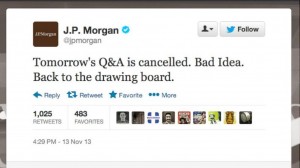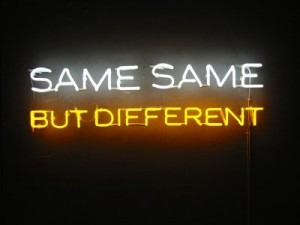
On October 3rd Twitter announced its IPO. The share price is expected to be $20.62, which values the company at $9.7billion.
On one hand Twitter appears to be the poster child for an IPO-ready company: increasing revenue growth from “$28 million in 2010 to $317 million last year;”increasing active users from 151 million to 218 million in the same time period; and receiving more than 65% of its advertising revenue from mobile devices.
On the other hand there is an overwhelming amount of data that suggests that Twitter may be too quick to follow in the steps of big brother Facebook, and that the IPO will not be as successful as its backers and supporters hope.
In its seven years of operations the company has increased profits, but it has also been steadily increasing losses. Conversely Facebook reported lower losses leading up to its IPO.
Furthermore, there is confusion and some doubt among potential advertisers who point out that many people “just don’t get Twitter.” If Twitter is eventually going to go the way of the dodo, it is not something a company wants to spend millions of precious advertising dollars on.
As well, revenue and user growth at Twitter has stalled at 7% annually. Is a time of static growth the time to launch an IPO? Even Twitter admits that to expand more overseas in terms of users and advertisers would “require a significant investment of time and resources.” The question then becomes whether it is good timing to invest in a company immediately prior to its biggest capital outlays, especially a company that has experienced accelerating losses since its inception.
Facebook’s IPO was a disappointment and a bit of a $104 billion gong show that is just now getting on its feet after a year and a half of share price mayhem. Twitter is treading on weaker ground than Facebook was in 2012. Ideally Twitter should solve its operational and financial issues before going to the public markets to prove it is a long-term player in the social networking space.
But, the Fed is printing money, the markets are hot, we are in high tech’s period of seasonal strength, and the naïve investing public is infatuated with tweeting. In other words, the time is ripe for yet another public fleecing where, in a year or so, Joe and Mary Investor will wonder why the Twitter stock their advisor sold them is floundering.
Maybe their broker can be reached in his Maserati with a tweet.
Citations:
The Economist. The Economist Newspaper, 4 Oct. 2013. Web. 06 Oct. 2013.Tate, Ryan. “Twitter Opens the Books, But Facebook’s IPO Looked So Much Better.” Wired.com. Conde Nast Digital, 02 Oct. 0013. Web. 06 Oct. 2013.
Image Citation:
“Twitter Preps for IPO with Acquisition and New Conversation UI.” SiliconANGLE. N.p., n.d. Web. 07 Oct. 2013.









